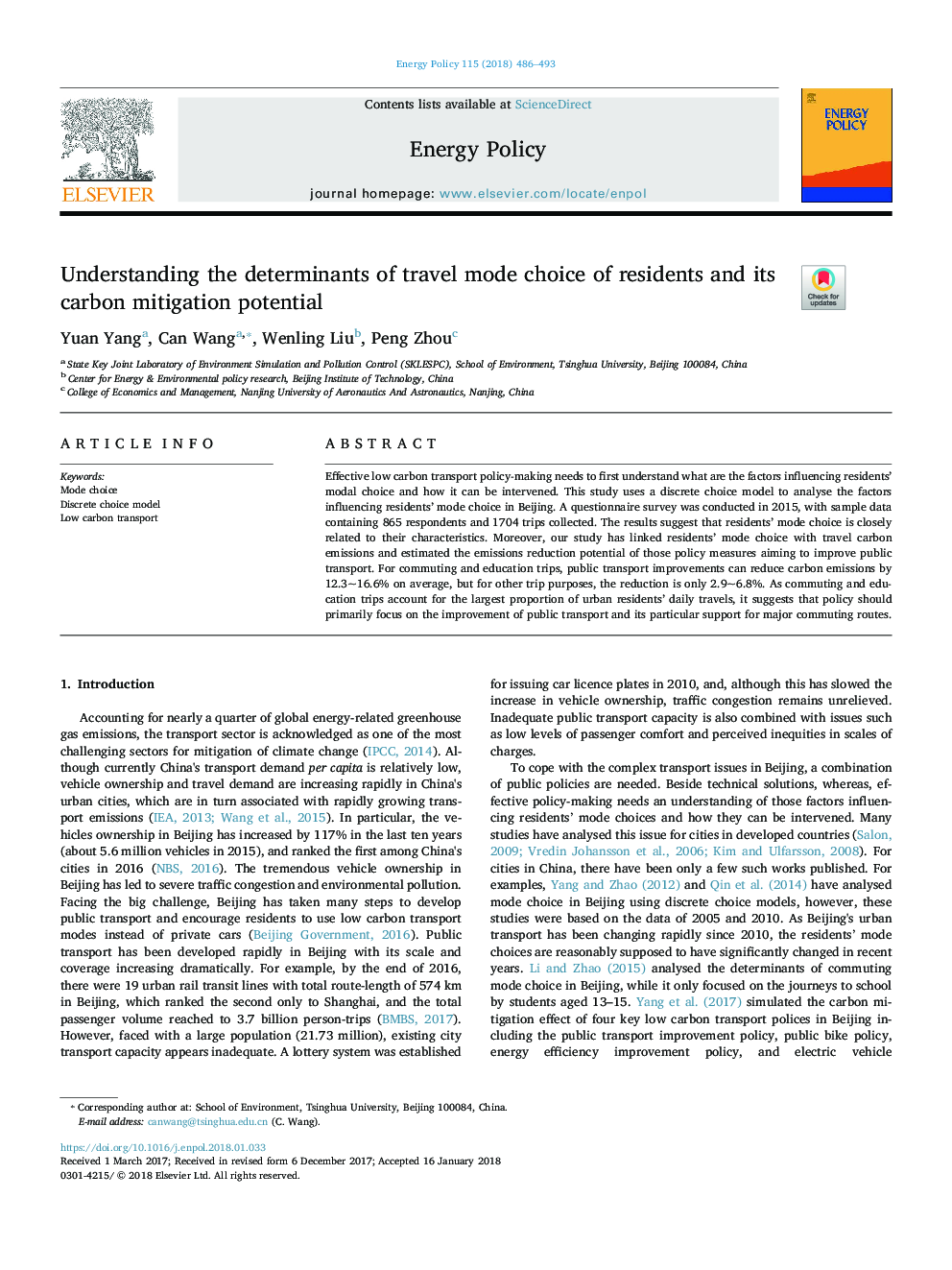| Article ID | Journal | Published Year | Pages | File Type |
|---|---|---|---|---|
| 7397798 | Energy Policy | 2018 | 8 Pages |
Abstract
Effective low carbon transport policy-making needs to first understand what are the factors influencing residents' modal choice and how it can be intervened. This study uses a discrete choice model to analyse the factors influencing residents' mode choice in Beijing. A questionnaire survey was conducted in 2015, with sample data containing 865 respondents and 1704 trips collected. The results suggest that residents' mode choice is closely related to their characteristics. Moreover, our study has linked residents' mode choice with travel carbon emissions and estimated the emissions reduction potential of those policy measures aiming to improve public transport. For commuting and education trips, public transport improvements can reduce carbon emissions by 12.3~16.6% on average, but for other trip purposes, the reduction is only 2.9~6.8%. As commuting and education trips account for the largest proportion of urban residents' daily travels, it suggests that policy should primarily focus on the improvement of public transport and its particular support for major commuting routes.
Related Topics
Physical Sciences and Engineering
Energy
Energy Engineering and Power Technology
Authors
Yuan Yang, Can Wang, Wenling Liu, Peng Zhou,
